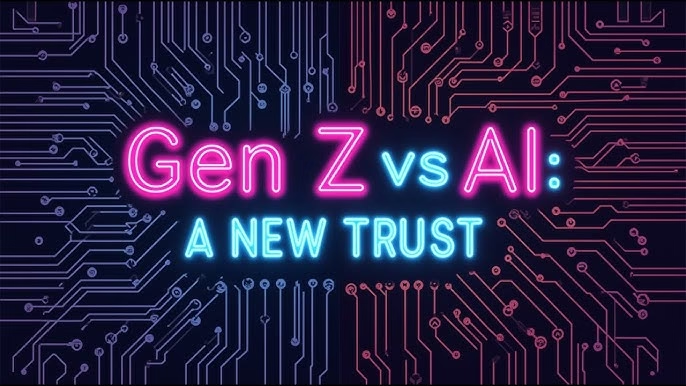Once, understanding the news meant trusting anchors, newspapers, or editorial voices. Today, that landscape has changed. Gen Z—born between 1997 and 2012—has grown up with smartphones, social platforms, and instant access to information. Instead of passively consuming news, they reshape it through technology, particularly generative AI.
The Shift to AI-Powered Interpretation

A recent Google–Kantar study highlights a striking fact: 84% of Gen Z use generative AI to make sense of news. This isn’t just experimentation with new tech—it’s a deliberate way of reframing information. AI helps them simplify complex stories, bridge language barriers, and extract meaning that fits their personal lens.
38% use AI to fill knowledge gaps
43% rely on it for quick clarity
36% turn to it for translations
For Gen Z, news is no longer a finished product—it’s raw material, reworked into customised insights.
A Generation of Skeptics
Contrary to the assumption that young people trust everything online, the study suggests otherwise. Nearly half of Gen Z actively distrust unverified reports, and:
43% verify information before sharing
39% fact-check health, money, or safety stories
42% in smaller towns fact-check more than metro audiences
This behaviour shows that digital scepticism is widespread, cutting across urban and regional lines.
Platforms, Creators, and Credibility
When it comes to where they get their news, social platforms dominate:
91% access news via social media
88% prefer video platforms
48% follow independent creators
43% follow established news outlets
However, trust tells another story. Legacy media still scores higher credibility (47%) compared to creator-led content (38–39%). Gen Z craves engaging, personalised storytelling, but they also value credibility when accuracy matters.
The Language of Connection
Gen Z’s learning and media habits also reflect a balance between global and local. While 42% prefer English for reading, they lean toward local languages in audio and video (57%) for easier understanding, stronger emotional connection, and greater shareability. This duality shows how they move seamlessly between global content and local identity.
What This Means for Learning
These trends paint a picture of Gen Z as active learners rather than passive consumers. They curate, verify, and reshape information, developing skills that encourage critical thinking and adaptability. Yet, the reliance on AI raises key questions:
Does AI-powered interpretation enhance independent judgment—or weaken it?
Could speed and convenience replace deeper reflection?
How will AI’s role in shaping perspectives influence future learning and decision-making?
Conclusion

Gen Z’s embrace of generative AI reflects both opportunity and uncertainty. By blending scepticism with technological fluency, they are reshaping how society consumes and trusts news. Whether this reliance on AI empowers sharper judgment or dilutes independent thought will depend on how they—and we—integrate these tools into daily life.


